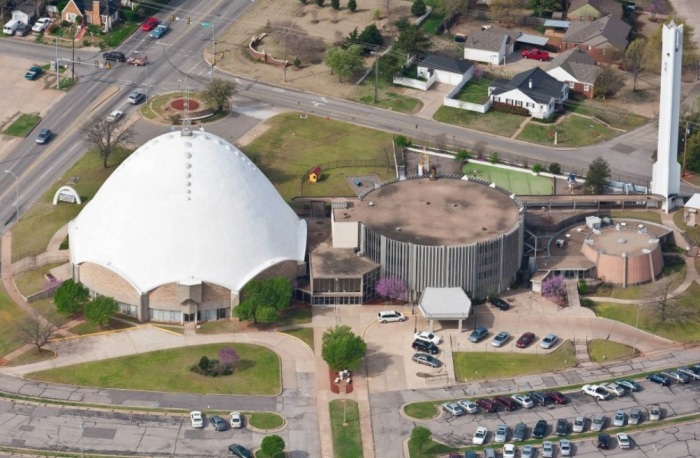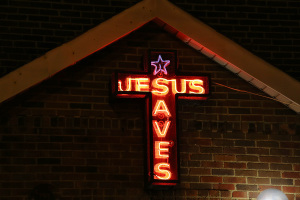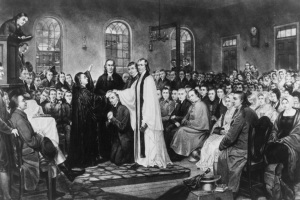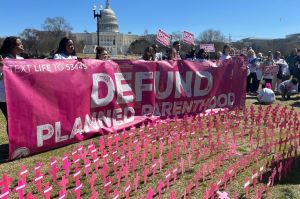Demolition of historic ‘egg church’ shocks OKC residents

A historic church building in Oklahoma City, Oklahoma, has been demolished due to maintenance issues, following years of efforts to keep the structure preserved.
First Christian Church, often called the “egg church” because of its distinctive dome, was destroyed Monday by a demolition crew, according to KOCO 5 News.
City officials told local news outlets that a permit to tear down the building had been approved last Friday, with some locals expressing dismay at the decision to demolish the church.
“I think that the city owes us an apology,” historic preservation activist Mark Faulk told KOCO. “You get it approved at 8:01 and they’re tearing it down at 8:02.”
“These buildings are unique in the entire world. There’s not another building like it in the entire world. And as we bulldoze all of our history in Oklahoma City, we’re taking our character away.”
Molly McBride, who had attended preschool at the building, told KOCO that she wished “somebody had tried harder” to save the church from destruction.
“It really would add a lot of pain to what’s already a painful loss in the city to see something come in that doesn’t reflect the character of the neighborhood,” McBride added.
Built in 1956 and listed on the National Register of Historic Places, the church had been noted as a place of refuge during the 1995 Oklahoma City bombing, according to the Tulsa-based Fox 23.
First Christian Church had to put the property up for sale in 2016 due to the increased demands of maintenance costs for the shrinking congregation.
In 2019, a group known as the Okie Mod Squad tried to get the city council to declare the church a landmark, getting thousands of signatures on an online petition.
Around the same time as the petition drive, a multisite megachurch named Crossings Community Church had openly considered buying the property to turn it into another campus.
However, by August of that year, Crossings Community had decided to not pursue the purchase, explaining in a statement at the time that “the overall cost was much higher than we anticipated.”
“It became far more than what our leadership and elders were willing to invest; particularly in light of our 60-year commitment not to incur any long-term debt,” they continued.
“[While] this is not the outcome that we had hoped for, we are confident that we have diligently pursued and carefully considered all aspects of this opportunity.”





























